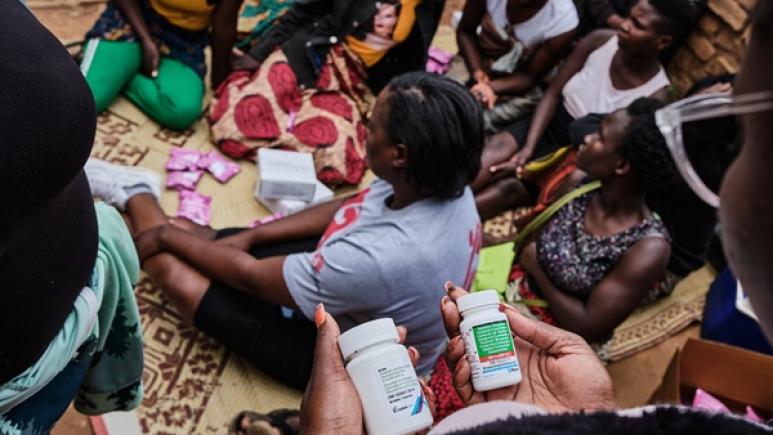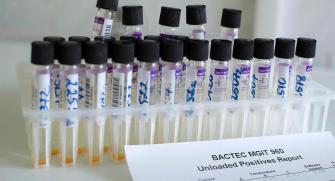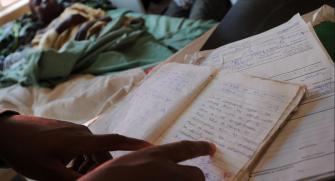Analyzing the acceptance, adoption and impact of new HIV prevention tools: a study among sex workers in Malawi
Pre-exposure prophylaxis (PrEP) is an HIV prevention tool offering significant protection against infection. This breakthrough is essential in a context where, by the end of 2023, almost 40 million people will be living with HIV and over 88 million will have been infected since the start of the epidemic (1). In 2015, the WHO first recommended oral PrEP, a tablet combining two antiretrovirals (emtricitabine and tenofovir disoproxil) for people at high risk of infection. Since 2022, a new long-acting injectable form of PrEP, long-acting Cabotegravir (referred to as “CAB-LA”), was recommended. Requiring just one injection every eight weeks, this antiviral treatment, a dolutegravir analog, is proving to be a safe and effective method of preventing HIV. Clinical trials have shown that CAB-LA reduces the risk of HIV infection by 79% compared with oral PrEP.
Towards gradual implementation of long-acting HIV prevention innovations
In Africa, four countries began offering CAB-LA in 2024: Zimbabwe, Malawi, Zambia and Eswatini. In line with new recommendations from Malawi's Ministry of Health, Médecins Sans Frontières (MSF) recently began offering CAB-LA for sex workers in the Dedza and Neno districts. Indeed, according to UNAIDS, in 2019, female sex workers were 30 times more likely to contract HIV than the general female population (2).
“With no HIV vaccine or cure in sight, CAB-LA and other long-acting formulations, can be a game changer in curbing the HIV epidemic if scaled up globally especially in low- and middle-income countries, particularly among groups at higher risk of acquiring HIV.” Dr. Antonio Flores, a Doctors Without Borders (MSF) HIV/TB advisor based in South Africa says (3).
Previously, CAB-LA has only been available through clinical trials, and data on its real-life use for sex workers is still limited. This is why Epicentre, in partnership with MSF, will evaluate the acceptance, uptake and long-term use of CAB-LA as a PrEP option for sex workers.
More choice: a key factor in the use of PrEP
“One of the main advantages of injectable PrEP is that it removes the burden of taking a daily pill, something many people find challenging,” points out Birgit Schramm, investigator of the study in Malawi.
Moreover, according to data collected by the MSF team in Malawi, use of oral PrEP is still low among sex workers, with approximately one third among those testing HIV-negative, and even fewer continued to take it over the long term. Barriers mentioned included a lack of knowledge about how PrEP works, an underestimation of the risks of HIV infection, the burden of taking daily pills, and concerns about stigmatization and potential violence by male customers, with oral PrEP having very similar packaging to anti-retroviral treatment (ART).
“By offering a highly effective and seemingly more convenient PrEP alternative, we expect that PrEP uptake will increase significantly, and the study will also assess whether injectable PrEP leads to sustained use over time” adds the epidemiologist.
The aim of the Epicentre study is indeed to better understand the preferences of sex workers, barriers and facilitators to the adoption and persistent use of PrEP, whether oral or injectable.
Community outreach model for PrEP provision
New HIV prevention strategies are evolving rapidly and offer the opportunity to slow down infections. To be truly effective, they must be affordable and adapted to the needs of users, taking into account their wishes and realities. The study will also assess the feasibility and acceptability of providing PrEP (both oral or injectable CAB-LA) through a community outreach model of care of MSF in Dedza and Neno Districts. MSF is offering PrEP as an integral part of sexual reproductive health and right (SRH+R) services that are provided through mobile clinics to female sex workers in sex work hotspots in the two Districts.
“Given the lack of evidence on the uptake and persistent use of injectable PrEP, particularly among sex workers, the study is expected to provide valuable information, particularly on PrEP provision through the community-based outreach model.”, adds Guillermo Martinez, Social Scientist and co-investigator of the research.
Initial feedback from the qualitative study suggests that users are beginning to take ownership of CAB-LA, with some reporting that it helps them open up and talk about how they protect themselves and others. This is reflected in the words of one study participant:
“I would [my family members] straight forward that they have introduced things that are protecting us from HIV. I felt that [being on CAB-LA] is one of the safe ways of protecting myself from HIV, and I don’t want to be a burden to my family members.”
This perspective aligns closely with MSF’s user-centered approach, which empowers sex workers to take ownership of their HIV prevention choices.
(1) https://www.unaids.org/sites/default/files/media_asset/UNAIDS_FactSheet_en.pdf
(2) https://www.unaids.org/fr/resources/documents/2021/05-hiv-human-rights-factsheet-sex-work
© Diego Menjibar











